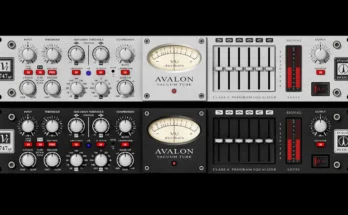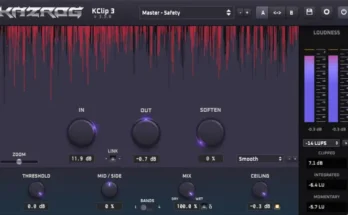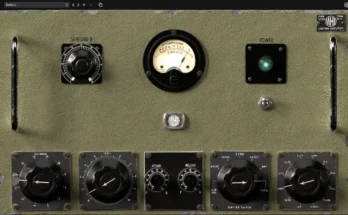Abacusynth v1.0.0 (For Max For Live) [FREE]
FREE | AMXD | 7.27 MB
Abacusynth is a polyphonic synthesizer for Ableton Live. It allows you to create rich, dynamic synth sounds simply by placing and manipulating shapes on rods.
The interface is inspired by an abacus, the ancient counting tool used all around the world. Just like the abacus is used to learn the fundamentals of math, the Abacusynth can be used to explore the building blocks of audio synthesis through its primary interaction: placing and manipulating shapes on rods. This familiar layout facilitates a new way of visualizing synthesis that makes it easy and fun to create rich timbres without having to fiddle with lots of knobs and sliders.
Timbre refers to all qualities of a sound that are not its pitch or volume. It is what allows us to discern the difference between, say, a piano and a trumpet that are playing the same note. Acoustic instruments produce timbre with their physical vibrations and resonances, and you can often adjust their timbre by using a modifier – the piano pedals or a trumpet mute for example. Synthesizers generate timbre electronically, meaning the control is not limited by any physical barrier. Turning one knob could completely alter the entire sound, depending on how the components are configured.
Traditional synthesizers have so many inputs because they aim to provide as much control over timbre as possible, but their complexity can often be prohibitive for beginners (and confusing even for experienced musicians). Manipulating these parameters is integral to music production, but this kind of timbral control is not often emphasized for someone learning music, even though it’s arguably just as “musical” as melody or rhythm.
To address this, the Abacusynth interface organizes the timbral building blocks – oscillator waveforms, harmonics, filters, and time-based modulations (or LFOs) – in a visual and spatial interface that prioritizes interaction and invites experimentation.
Please REPORT in Comment Broken Links




